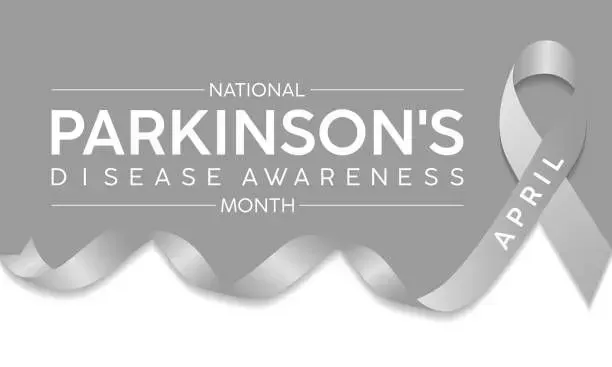Parkinson’s Disease Support: April Marks Awareness Month
Parkinson's Disease Support: April Marks Awareness Month
Cleveland Clinic explains "although there are several recognized risk factors for Parkinson’s disease, such as exposure to pesticides, for now, the only confirmed causes of Parkinson’s disease are genetic. When Parkinson’s disease isn’t genetic, experts classify it as “idiopathic” (this term comes from Greek and means “a disease of its own”). That means they don’t know exactly why it happens.
Many conditions look like Parkinson's disease but are instead parkinsonism (which refers to Parkinson’s disease-like conditions) from a specific cause like some psychiatric medications."

April marks Parkinson’s Awareness Month, a time dedicated to shedding light on Parkinson’s disease, a neurodegenerative disorder that affects millions worldwide. At 7 Day Home Care, a leading home health care agency specializing in Parkinson’s care across Manhattan, Queens, Brooklyn, Nassau County, and Suffolk County, New York, we recognize the significance of raising awareness about this condition. In this article, we discuss the origins of Parkinson’s disease, its symptoms, and why awareness is crucial in supporting individuals and families affected by this condition.
Origins of Parkinson’s Disease
Parkinson’s disease was first identified by British physician Dr. James Parkinson in 1817 in his groundbreaking essay "An Essay on the Shaking Palsy." Dr. Parkinson meticulously documented the symptoms of what would later become known as Parkinson’s disease, including tremors, stiffness, and impaired balance. His pioneering work laid the foundation for understanding this complex neurological condition.
Understanding Parkinson’s Disease
Parkinson’s disease is a chronic and progressive neurological disorder that primarily affects movement. It occurs when nerve cells in the brain, particularly in a region called the substantia nigra, gradually degenerate and produce less dopamine, a vital chemical messenger responsible for transmitting signals that coordinate smooth and controlled muscle movements. As dopamine levels decrease, individuals with Parkinson's experience a wide range of motor symptoms, including tremors (involuntary shaking, often starting in the hands), bradykinesia (slowness of movement), muscle rigidity (stiffness and inflexibility), and postural instability (impaired balance and coordination). In addition to these motor symptoms, Parkinson's disease can also cause various non-motor symptoms such as depression, anxiety, cognitive changes, sleep disturbances, and autonomic dysfunction. The progression and severity of Parkinson's symptoms vary from person to person, and while there is currently no cure for the disease, treatment options such as medication, therapy, and lifestyle modifications can help manage symptoms and improve quality of life for individuals living with Parkinson's.
Parkinson's Disease Symptoms and Signs
Parkinson’s disease manifests differently in each individual, but common signs and symptoms include:
- Tremors: Involuntary shaking, usually beginning in the hands or fingers, even at rest.
- Bradykinesia: Slowness of movement, making simple tasks such as buttoning a shirt or walking challenging.
- Muscle Rigidity: Stiffness and inflexibility in the muscles, leading to decreased range of motion.
- Postural Instability: Impaired balance and coordination, increasing the risk of falls.
- Non-motor Symptoms: These include depression, anxiety, cognitive changes, sleep disturbances, and autonomic dysfunction.
Why Parkinson's Disease Awareness Matters
Raising awareness about Parkinson’s disease is paramount for several reasons:
- Early Detection and Diagnosis: Increased awareness encourages individuals to recognize the early signs and symptoms of Parkinson’s disease, leading to prompt diagnosis and access to appropriate medical care and support services.
- Reducing Stigma: Despite being a common neurological disorder, Parkinson’s disease is often misunderstood, leading to stigma and misconceptions. By fostering awareness and understanding, we can combat stigma and create a more inclusive and supportive environment for those living with Parkinson’s and their caregivers.
- Access to Resources and Support: Awareness campaigns provide valuable information about available resources, support groups, and healthcare services tailored to individuals with Parkinson’s disease and their families. These resources play a crucial role in improving quality of life and enhancing coping mechanisms for those affected by the condition.
- Advancing Research and Treatment: Increased awareness generates public interest and support for research initiatives aimed at better understanding Parkinson’s disease, developing innovative treatments, and ultimately finding a cure. By raising awareness, we contribute to the collective effort to improve outcomes and quality of life for individuals living with Parkinson’s disease.
7 Day Home Care
Home Health Care Agency Supporting Individuals with Parkinson’s
At 7 Day Home Care, we understand the unique challenges faced by individuals living with Parkinson’s disease and their families. Our team of skilled caregivers is dedicated to providing compassionate and specialized care tailored to the individual needs of each client. From assistance with daily activities to medication management and emotional support, we strive to enhance the quality of life for those living with Parkinson’s disease in the comfort of their own homes.
Parkinson's Disease and Respite Care at Home
Respite care provides essential relief and support for family caregivers who are caring for a loved one with Parkinson's disease. This specialized form of care offers caregivers the opportunity to take a break from their caregiving responsibilities, recharge, and attend to their own physical and emotional well-being. During respite care, trained professionals step in to provide temporary assistance and supervision to the individual with Parkinson's, ensuring their safety and comfort while the primary caregiver takes some time off. Whether it's for a few hours, a day, or longer periods, respite care offers caregivers the chance to rest, run errands, pursue personal interests, or simply relax, knowing that their loved one is in capable hands. By alleviating caregiver stress and preventing burnout, respite care ultimately helps family caregivers sustain their caregiving role over the long term while maintaining a healthy balance in their own lives.
Parkinson’s Awareness Month serves as a poignant reminder of the importance of understanding, empathy, and support for individuals living with Parkinson’s disease. By raising awareness, dispelling myths, and advocating for access to resources and services, we can create a more inclusive and supportive community for those affected by this condition. Together, let us continue to strive for a world where Parkinson’s disease is better understood, and those living with it receive the care and support they deserve.
To learn more about our specialized in-home care services for Parkinson's disease in Manhattan, Queens, Brooklyn, Nassau County, and Suffolk County, please don't hesitate to contact us at 516-408-0034. Our dedicated team at 7 Day Home Care is here to provide compassionate and tailored support for individuals living with Parkinson's and their families. You can also visit our website at 7 Day Home Care for more information about our services, our approach to Parkinson's care, and how we can assist you or your loved one in maintaining independence and quality of life at home.
Brian Callahan
7 Day Home Care










